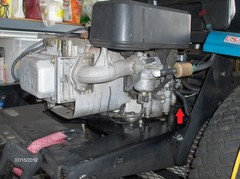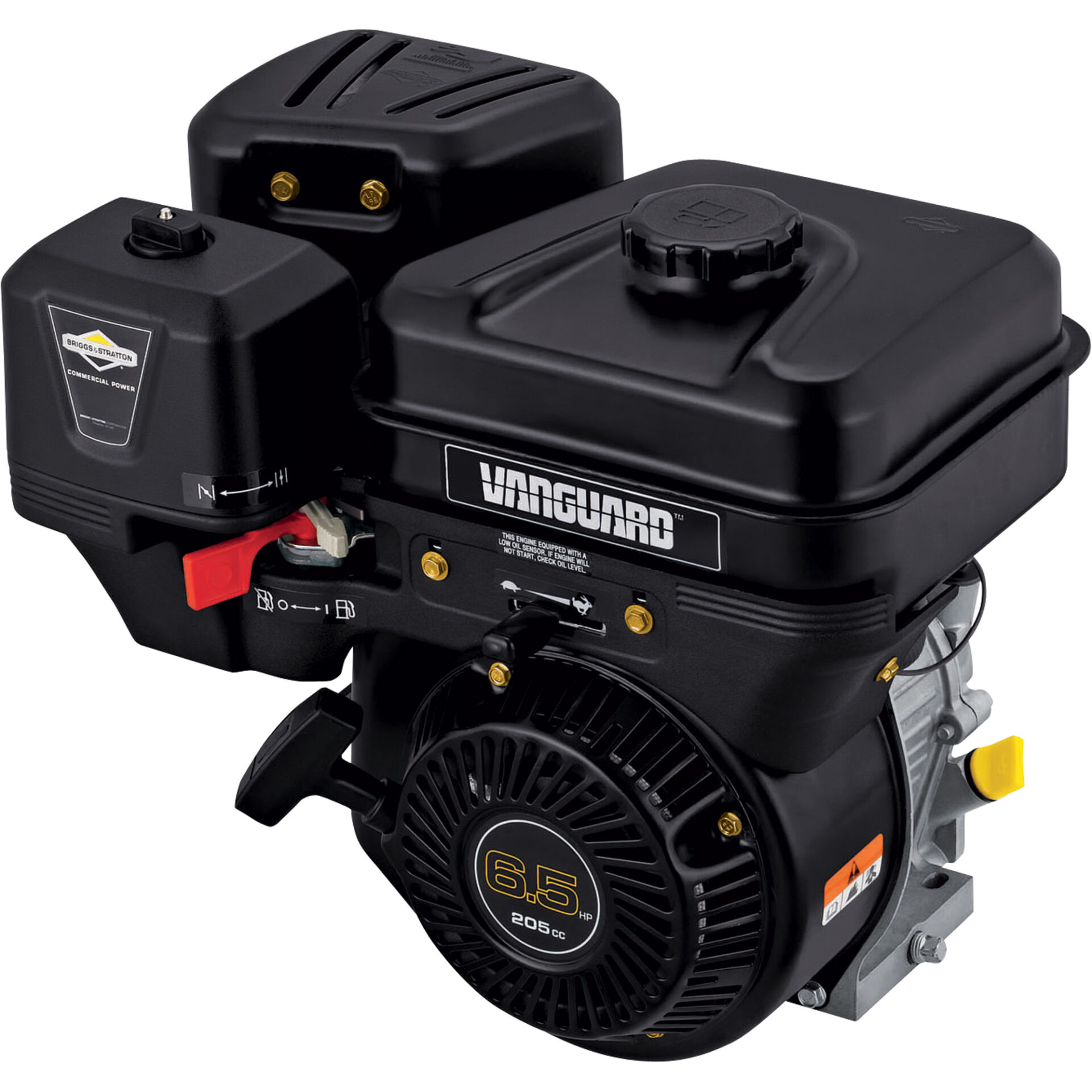To fix a Briggs and Stratton oil leak problem, inspect the sump bolts for secure tightening. Additionally, check for any damaged oil pan or gasket that could cause the leak.
Once identified, make the necessary repairs to mitigate the oil leak and ensure proper engine functionality. Briggs and Stratton engines are known for their durability and reliability; however, even the most robust engines can experience oil leaks. When faced with an oil leak from a Briggs and Stratton engine, it’s crucial to take swift action to prevent any further damage and maintain optimal performance.
In this comprehensive guide, we will explore the common causes of oil leaks in Briggs and Stratton engines and provide effective solutions to address this issue. By following the steps outlined you can effectively diagnose and rectify the oil leak problem in your Briggs and Stratton engine, ensuring smooth operation and longevity.

Credit: m.youtube.com
Common Causes Of Oil Leaks
Briggs and Stratton oil leak problems can be caused by a damaged oil pan or gasket. This common issue occurs when the oil pan, which stores oil when the engine is not in use, gets damaged or the gasket between the oil pan and engine block fails.
Damaged Oil Pan Or Gasket
An oil leak in your Briggs and Stratton engine can be caused by a damaged oil pan. The oil pan stores the oil not in use and is separated from the engine block by a gasket.
Worn Or Broken Seals
If your engine has worn or broken seals, it can lead to oil leaks. Seals play a crucial role in preventing oil from seeping out of the engine components.
Leaking Valve Cover
A leaking valve cover can also contribute to oil leaks. The valve cover gasket may degrade over time, causing oil to escape from the valve cover area.
Identifying and addressing these common causes of oil leaks promptly can help maintain the performance and longevity of your Briggs and Stratton engine.

Credit: www.houzz.com
Signs Of An Oil Leak
Identifying the signs of an oil leak in your Briggs and Stratton engine is crucial for maintaining its performance and preventing potential damage. Keep an eye out for the following indicators of an oil leak:
Pooling Or Dripping Oil
If you notice pooling or dripping oil underneath your Briggs and Stratton engine, it is a clear indication of an oil leak. This can often be observed as oil collecting beneath the mower or forming puddles on the ground beneath the engine. Addressing this issue promptly can prevent further damage and engine inefficiencies.
Burning oil Smell
A distinctive burning oil smell emanating from your lawnmower engine often points towards an oil leak. This smell can arise from oil seeping onto hot engine parts, leading to smoke and unpleasant odors. Immediately inspecting and resolving the oil leak is essential to prevent prolonged engine damage.
Low oil Levels
Regularly monitoring the oil levels in your Briggs and Stratton engine is crucial. If you frequently observe low oil levels, it could be a sign of an oil leak. Low oil levels can negatively impact the engine’s lubrication, potentially causing serious damage. Addressing the leak and replenishing oil levels promptly is vital for maintenance.
Diagnosing An Oil Leak
An oil leak in a Briggs and Stratton engine can be a common issue that disrupts the proper functioning of the equipment. Diagnosing the source of the oil leak is crucial to effectively address the problem and prevent further damage. By thoroughly inspecting specific components, you can identify the root cause of the leak, whether it’s due to a damaged oil pan, faulty seals and gaskets, or issues with the valve cover.
Inspecting The Oil Pan
Start by inspecting the oil pan for signs of damage or corrosion. Perform a visual examination to check for cracks, dents, or any other visible irregularities. Ensure that the oil plug is securely fastened and not causing the leak. It’s important to address any issues related to the oil pan to prevent oil leakage.
Checking Seals And Gaskets
Next, examine the seals and gaskets in the engine. Look for any signs of wear, tear, or deterioration that could lead to oil leakage. A thorough check of the seals and gaskets, including the crankshaft seals and valve cover gasket, is necessary to identify and resolve potential leakage points.
Investigating The Valve Cover
Lastly, investigate the valve cover for potential oil leaks. Inspect the cover for any cracks or damages that may cause oil to seep through. Ensuring the valve cover is intact and properly sealed is essential in preventing oil leaks from this component.
Fixing Briggs And Stratton Oil Leaks
Briggs and Stratton oil leaks can be a common issue that may lead to engine damage if not addressed promptly. Here are some effective methods for fixing oil leaks in your Briggs and Stratton engine.
Replacing The Oil Pan Or Gasket
If you notice oil leaking from your Briggs and Stratton engine, a damaged oil pan or gasket may be the culprit. Here’s how you can replace them:
- Drain the engine oil to remove the old gasket or pan.
- Clean the mating surfaces thoroughly.
- Install the new gasket or pan securely.
- Refill the engine with the recommended oil.
Repairing Or Replacing Seals
Leaking seals can also cause oil leaks in Briggs and Stratton engines. Follow these steps to repair or replace the seals:
- Identify the leaking seal by inspecting the engine.
- Remove the old seal carefully without causing any damage.
- Install a new seal in its place, ensuring a proper fit.
Fixing A Leaking Valve Cover
Another common source of oil leaks in Briggs and Stratton engines is a leaking valve cover. Here’s how you can fix it:
- Remove the valve cover carefully.
- Inspect the cover for any damage or wear.
- Replace the gasket if necessary.
- Securely reattach the valve cover to the engine.
Preventing Future Oil Leaks
Oil leaks can be a frustrating and messy problem to deal with, especially when it comes to Briggs and Stratton engines. However, with a few preventative measures, you can minimize the risk of experiencing oil leaks in the future. In this section, we will discuss three key ways to prevent future oil leaks: regular maintenance, using the right oil, and properly torquing bolts.
Regular Maintenance
Maintaining your Briggs and Stratton engine on a regular basis is essential for preventing oil leaks. Regular maintenance includes checking the oil level, cleaning or replacing the air filter, and inspecting the engine for any signs of damage or wear. By keeping your engine in good condition, you can reduce the chances of oil leaks occurring.
Using The Right Oil
Using the right type of oil is crucial for preventing oil leaks in your Briggs and Stratton engine. Make sure to consult the manufacturer’s guidelines or your owner’s manual to determine the correct oil viscosity and specifications for your engine. Using the wrong oil can lead to excessive wear and tear, which can result in oil leaks.
Properly Torquing Bolts
Tightening bolts to the proper torque is another important step in preventing oil leaks. Over time, bolts can become loose due to engine vibrations, leading to oil leaks. Use a torque wrench to ensure that all bolts are tightened to the recommended specifications. This will help maintain a tight seal and prevent oil from leaking out.
By following these preventative measures, you can significantly reduce the risk of experiencing oil leaks in your Briggs and Stratton engine. Regular maintenance, using the right oil, and properly torquing bolts are all essential steps in keeping your engine in top shape and preventing oil leaks from occurring.

Credit: www.powertripohio.com
Frequently Asked Questions On Briggs And Stratton Oil Leak Problem
How Do You Diagnose Where An Oil Leak Is Coming From?
To diagnose an oil leak, check underneath the vehicle for oil spots, inspect oil pan, gaskets, seals, and connections. Clean the area and run the engine to pinpoint the source accurately.
What Is The Most Common Cause Of An Oil Leak?
The most common cause of an oil leak is a damaged oil pan or gasket. The oil pan stores oil when the engine isn’t using it and includes a gasket that isolates it from the engine block.
Why Is My Lawn Mower Leaking Oil From The Bottom?
Your lawn mower may be leaking oil from the bottom due to a worn or broken seal on the crankcase connection tube. Check for any wear or damage and consider replacing the seal to resolve the leakage issue. Regular maintenance can help prevent future leaks.
Conclusion
Identifying and addressing Briggs and Stratton oil leaks can prevent costly damages. From damaged oil pans to worn seals, understanding the root cause is crucial. Taking proactive steps can help maintain the engine’s performance and prolong its lifespan. Stay informed and address any issues promptly.